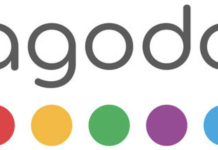SINGAPORE, 23 October 2025: Qlik, a specialist in data integration, analytics and artificial intelligence (AI), released findings on Wednesday from a new YouGov survey of travellers across Singapore, Japan, Australia and India.
The results reveal a fault line: While people in these markets embrace tools that cut costs and sharpen planning, they push back hard against automation that seizes control and data demands that cross the line into the personal.
The research found that only 11% of residents surveyed in these markets actually trust AI more than people, and only one in four travellers want personalisation but refuse to share data.
For companies serving travellers and for businesses adopting AI more broadly, the mandate is clear: deliver visible value, safeguard user control, and build trust by handling data transparently and in line with tightening regulations.
What travellers across Asia want
When it comes to diverse needs, Singapore and India stand at opposite ends. Singapore travellers want robust planning tools, but almost two-thirds (63%) reject auto-rebooking (the automated process where a travel platform or airline changes a customer’s reservation without requiring confirmation from the traveller), signalling a desire for control. India, meanwhile, shows the highest openness to sharing planning data and optimism on AI, with one in five saying AI is more trustworthy than people. Yet Indian travellers still prefer a human recommendation in the final step, revealing a hybrid trust model.
The research found that Japan represents the most privacy-protective market. The gap between desired features and willingness to share data is wider in Japan than anywhere else, with only 31% willing to share data, underscoring deep cultural caution about digital tracking.
Australia, while not as extreme, shows a pragmatic stance. The country’s prolific travellers are price-driven and will share search data, but they remain sceptical about suggested destinations and cautious about automation such as rebooking.
“APAC travellers just gave every C-suite the AI playbook: Reward people with prediction and savings, and never remove their agency,” said Qlik CEO Mike Capone.
“Travellers will share searches and budgets when the benefit is clear, but they shy away from anything that edits plans without consent. Trust only comes when systems are explainable, auditable and tied directly to measurable value. Companies that respect trust and choice will earn loyalty at scale.”
The journey ahead
- Businesses across the region will gain trust by demonstrating utility before requesting data.
- Lead with prediction and budgeting features that surface clear savings, then layer in permissions.
- Design consent as a first-class experience: Notify, show the exact change, ask before execution and offer a one-tap undo.
Explain every recommendation in plain language, including the key inputs and confidence behind it, so customers understand the “why,” not just the “what.”
Research methodology
The findings in this report are based on a research study conducted by YouGov on behalf of Qlik. The survey gathered responses from nationally representative samples of adults aged 18+ across four Asia Pacific markets: Singapore, Australia, India, and Japan. The study was conducted via a quantitative online survey with YouGov panel members, administered from 25 to 28 August 2025.
In total, responses were weighted by age, gender, and geography to ensure representation within each market. The results for Singapore reflect a cross-section of the adult population, providing insights into consumer attitudes toward data sharing, AI adoption, and travel personalisation features.
(Source: Qlik)






